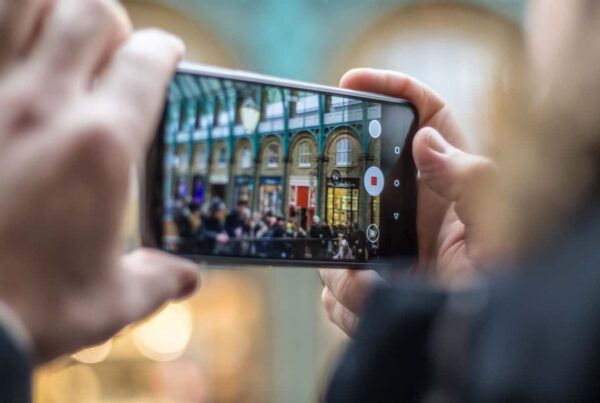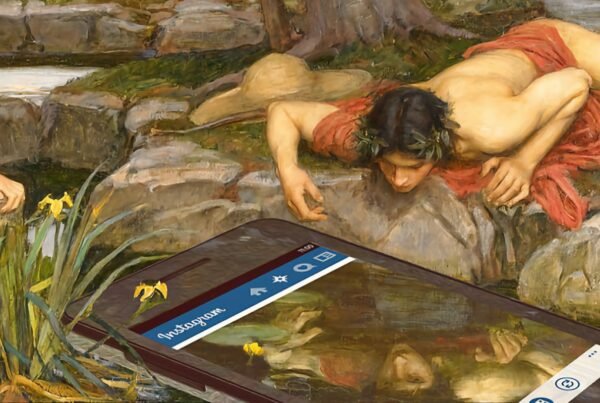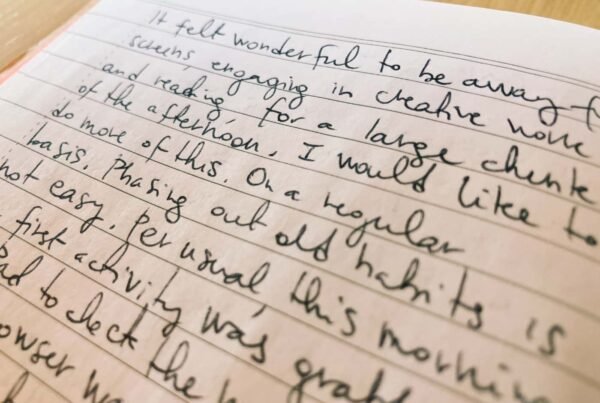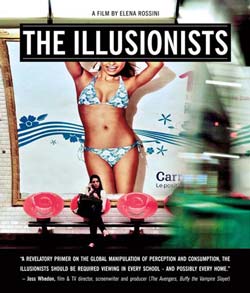Personally, one of the most startling elements of our current world – life in the 2020s – is how there seems to be no distinction between real life and online life. The latter seeps into and affects the former in countless ways. They have effectively merged.
For tens of millions of people – especially younger generations that are “extremely online” – real life experiences are often seen from the optics of “content opportunities” and generators of likes, comments and followers.
The most talked about people in our world are polarizing figures, attracted to attention. The 45th president of the United States (until he got deplatformed), Elon Musk, the Kardashian-Jenner clan. “Look at me look at me look at me” their actions seem to beg.
Social media platforms – the foundation of our online worlds – by design reward eye-catching behavior and users who post frequently. The more a person asks for attention, the more the algorithm rewards them.
For those of us driven by different values, this new reality can seem dispiriting. But there is another way – and there are many of us who feel this way.
It’s just that people who choose to shun social media platforms and give more importance to the real world by definition are unseen – unless you personally know one of them. They wouldn’t post frequently to TikTok or Instagram extolling the virtues of being off social media because they *are* off social media. Thing is, there seem to be scores of people who have made this decision.
The Reddit community r/NoSurf (tagline: “stop spending life on the net”) has 183.000 members. I joined it three years ago and back then there were less than 50.000 members. Momentum is growing.
I quit Facebook and Instagram five years ago. I never joined TikTok or attempted to become a YouTuber. The only social media platforms I’ve been using – sporadically – are Twitter and LinkedIn. I’m not a loner living in a dark basement. I got married in 2019 (to a man who shares my values and views regarding social media), had a baby last year and I’ve been nurturing friendships the old fashioned way: via phone calls, texts, emails and especially meetings in real life. Guess what? It’s not only possible but easy and extremely rewarding.
Before we get any further, let me share with you my definition of a “realist.”
The realists – a definition
I see a realist as someone who puts premium value on real life over online life.
A person whose sense of worthiness does not depend on reactions by an audience of strangers online.
Life experiences for a realist are not about creating “content” that gets likes and followers.
A realist knows that it’s important to follow the money. Tech companies, advertisers and brands reap enormous profits by tracking people’s actions online and extracting data from them. Keeping eyeballs on screens is their top priority. Socialization in the 2020s is mediated by tech platforms that have gamified human connections. A realist is keenly aware of this and makes an effort to nurture relationships in the real world, away from social media platforms.
A realist values privacy.
Ultimately, a realist spends time online, but in a conscious, mindful way.
There are countless ways one can enjoy a “realist lifestyle” but here are 3 things I remind myself of every day – that reinforce my will to be a realist.
1. The preciousness of time
I had an enlightening conversation with clinical counsellor Renae Regehr when I interviewed her for The Realists in Vancouver. Her words are incredibly powerful, perfectly distilling why it’s important to be conscious of time:
You have one life to live. Live it. Don’t get caught up behind a screen, don’t be consumed with things that are going to pass, or things that are going to fade, or things that are going to change.
When you are on your deathbed… This might sound morbid, but when you are on your deathbed you are not going to think “I wish I had spent more time online, I wish I’d spent more time posting to social media, I wish I’d put the perfect photo online, I wish I had played that video game more.” You’re going to want to be surrounded by the people you care about, and the people that matter to you, and you’re gonna be thinking about all the rich experiences that you had.
2. The importance of reciprocal relationships over parasocial ones – or: how to spot a real friend vs. an “online friend”
Social media platforms like Instagram, TikTok and YouTube thrive on parasocial relationships and voyeurism.
A parasocial relationship is one-way, completely one-sided and doesn’t grow or provide mutual nourishing. If you follow the Instagram account of an influencer, you know everything about them, but if you were to meet them in real life, they wouldn’t have a clue who you are, well… you’re in a parasocial relationship with them. This is the illusion of a relationship, without any of the perks of a real friendship.
A realist gives far more importance to reciprocal relationships. Real world friendships, based on intimacy, trust, mutual support. Some can start and exist mostly online, but the key ingredient is mutual sharing and the deepening of a bond.
As a realist, for me it’s incredibly easy to make a distinction between a real friend, an acquaintance, and someone who is in a parasocial relationship with me.
Does this person know my husband’s name? My daughter’s name? Does this person know what my baby looks like? Because I don’t share any personal information on Twitter or LinkedIn. When I publish occasional blog posts about my life, I always purposefully omit my daughter’s name and I share photos of her from the back. Her face is never visible. My real, close friends have met my husband and my baby. Those who live far away and haven’t been able to travel because of the pandemic, at least have seen photos of my baby. So the distinction is super easy to make. And let me tell you, it’s an amazing feeling to know who your real friends are, to see these relationships mature with time.
It’s ironic that at a time when social media networks boast billions of users (Facebook’s motto: “bringing the world closer together), we are also experiencing an epidemic of loneliness.
What I have learned over these past 5 years of being off social media is that it’s extremely rewarding to nurture relationships in a mindful way.
Instead of blasting off a generic status update or publishing a pretty picture with a witty caption to an audience of friends and strangers, I maintain relationships one-on-one, in a more deliberate, intentional and intimate way. Imagine that! Well, we all did this before the 2010s, it’s nothing new.
My system to keep in touch with friends, acquaintances and professional contacts is something that is working out amazingly for me. It is a system, it requires a bit of time to set up but now it’s working seamlessly. I promise I will devote a future article to it.
3. The importance of a healthy mind in a healthy body
As an Italian who studied the classics (Latin and Ancient Greek), I often heard the maxim “Mens sana in corpore sano” – “a healthy mind in a healthy body.”
This Latin phrase could be the unofficial motto of The Realists.
Being mindful of the time I spend online is extremely beneficial to my mental health… but I also know the importance of being physically active and present in the real world.
Everyday, I walk for about three hours – this doesn’t require much planning. I typically take my baby for a stroll in the park, to/from her nanny’s, go grocery shopping for her. If I have a remote meeting, I convert it to an audio call… and easily accrue 11,000 steps this way.
As a realist, I don’t just walk. I try to notice and appreciate things around me. A decade ago I stumbled upon Helen Keller’s powerful essay “Three Days to See” which has revolutionized the way I live.
(For those not familiar with this formidable individual, Helen Keller lost her sight and her hearing at 19 months. She had an incredibly inspiring life, becoming an accomplished author, disability rights advocate, a lecturer, and was a founding member of the American Civil Liberties Union).
It’s hard to distill into a few sentences the richness, eloquence and sheer beauty of Keller’s “Three Days to See”. It’s a manifesto for a more present, more conscious, more grateful life. Real life, away from screens. I encourage you to print it out, go for a stroll and read it. It’s that transformative.
An excerpt:
If I can get so much pleasure from mere touch, how much more beauty must be revealed by sight. Yet, those who have eyes apparently see little. The panorama of color and action which fills the world is taken for granted. It is human, perhaps, to appreciate little that which we have and to long for that which we have not, but it is a great pity that in the world of light the gift of sight is used only as a mere convenience rather than as a means of adding fullness to life.
What is the most interesting thing you’ve seen today, out in the real world?







